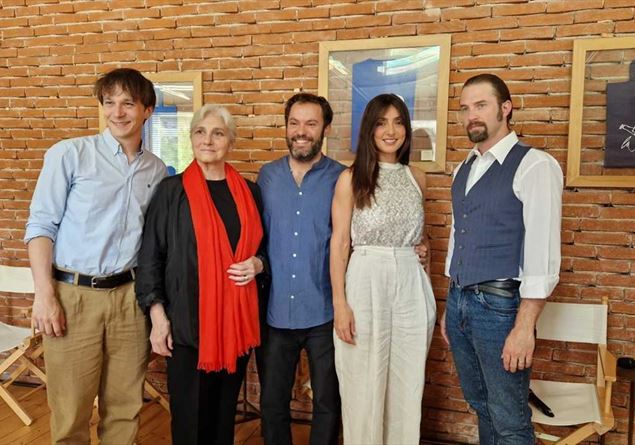The now solid combination of Ambra Angiolini and the Franco Parenti Theater in Milan is also renewed for the summer season. From 12 to 22 June on the stage of via Pier Lombardo is staged The queen of Leenanethe first great success of the award -winning Angloirish author Martin McDonagh. Among the actors, in addition to Angiolini, here is Ivana Monti, Stefano Annoni and Edoardo Rivoira. On the other hand, there is Raphael Tobia Vogel.
The work of McDonagh -Pur set in the nineties in Leenane, a remote village of Rural Ireland- It is delicate themes and current. Loneliness, stormy family relationships that lead to drama and psychological violence. The plot is intense: Maureen Folan (played by Angiolini) is forty years old and has always lived with the elderly mother Mag (Ivana Monti) in an isolated house in the hills of the county of Galway immobile and without prospects. Their link has turned into an emotional prison made of addiction, silences and small daily blackmail. Cohabitation is a painful and cruel mechanism that repeats itself identical day after day. The return to the village of Patrick Dooley (Stefano Annoni), old acquaintance of Maureen, opens a glimpse to the woman: the possibility of a new life, far from that house. Mag, unable to accept the possible abandonment by the daughter and solitude, acts with strategic cruelty. A hidden letter, a tacit truth and broken hope triggers a slow slip towards the abyss, where closeness becomes poison and grudge turns into fierce anger.
During the presentation conference, Angiolini, that in this 2025 returns to Parenti for the third time (after the evening-meeting with Milena Vukotic and the work Olivia Denaro), he underlined the importance of the message of this new show: «From Thursday we will stage contemporaneity. Let’s talk about the world today, one thing that few do in our profession. We want to transmit emotionality mainly. The numerical result certainly interests us, but it is not the priority. Leenane’s village is a lifestyle. It is a way of being on this earth. The work speaks of an amazed love, which makes personal frustrations perceive. A love that tries to outline red lines not to go beyond. An abuse of love, especially mental, with the protagonists embedded inside their soul and forced to slide into a ravine ravine. ” The Roman actress then thanked the Teatro Parenti and the director Andrée Ruth Shammah: «Those who work here does it hard. This theater allowed me to improve daily. I made a path of constant growth, five years ago I would never have dreamed of going on stage with this work. If there was not a lot of contemporary theater, it would disappear. We had a good time immediately with the whole company, it is a privilege to work with them ».
Director Raphael Vogel He praised Angiolini’s qualities and then explained his vision of the work: «Ambra is a volcano of courage and energy. He throws himself, digs deep up to the abyss almost. He never gives up, it surprises me so much. It is a working example and an example of life. We immediately found ourselves, because we both love this text and this author. The work, despite an ironic and light appearance, broods a tension as a psychological thriller and despair suitable for a drama. We stage an infinite carousel, where the victim and executioner continuously exchange the role. The setting remains in the nineties to honor the author, but the story is still very current. We want the viewer to perceive the cold the gloomy. That is in tension, without feeling light ».
Finally, the closure of the director Shammah, who focused on the main objective of the Parenti Theater: to grow young people and give confidence to the most particular representations. «I never wanted to read the text of the Leenane queen. I love lighter pieces, but here I left my son free field (Vogel, ed) and Amber. He is the protagonist, but at the same time a great revelation that is renewed year after year in our theater. Our method consists in developing a personal path of the actors. Giving them time and protecting them. First we start them in the small rooms and then slowly we send them to the large room, in front of the large audience. Because the theater is made with the public and grows with it ».


